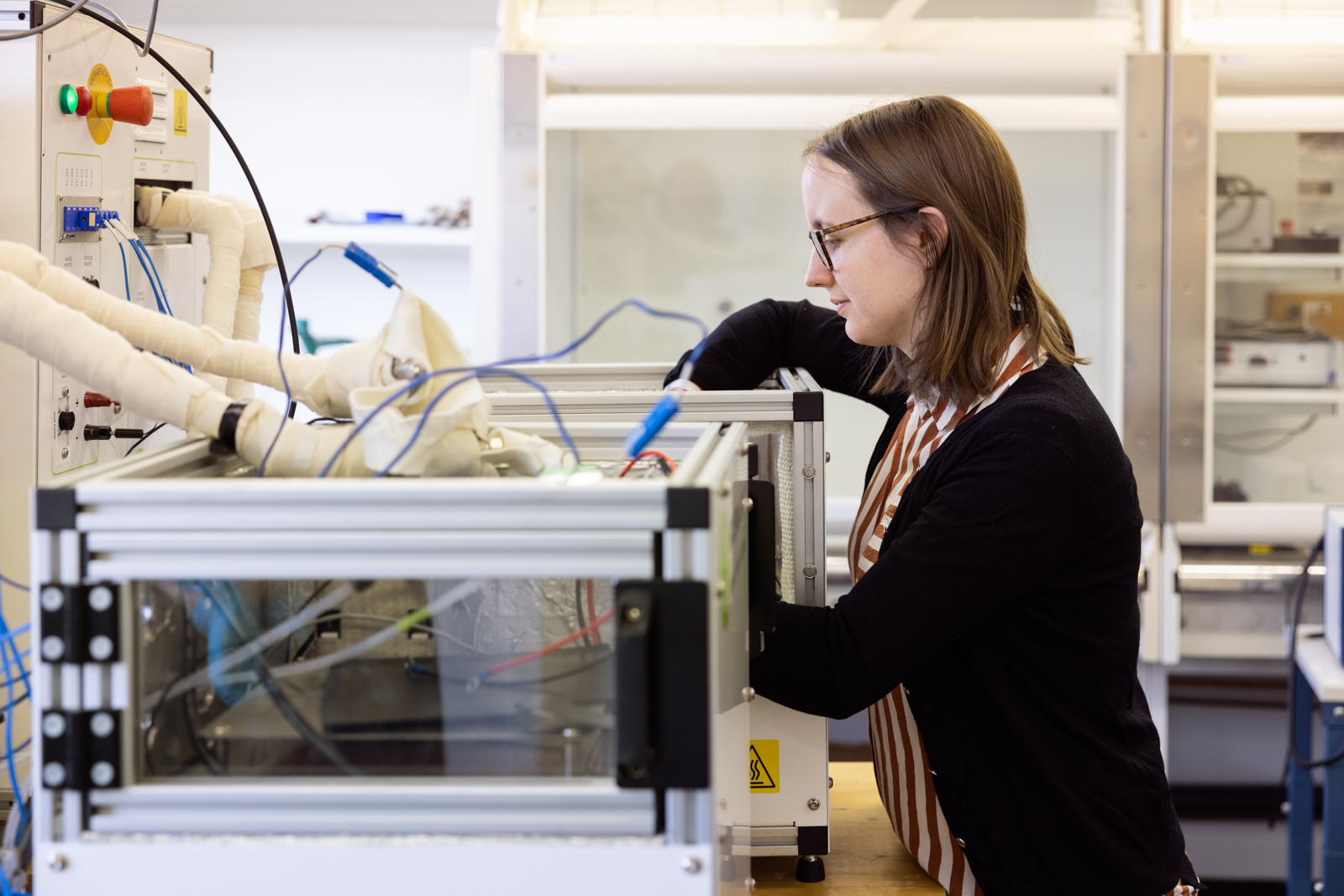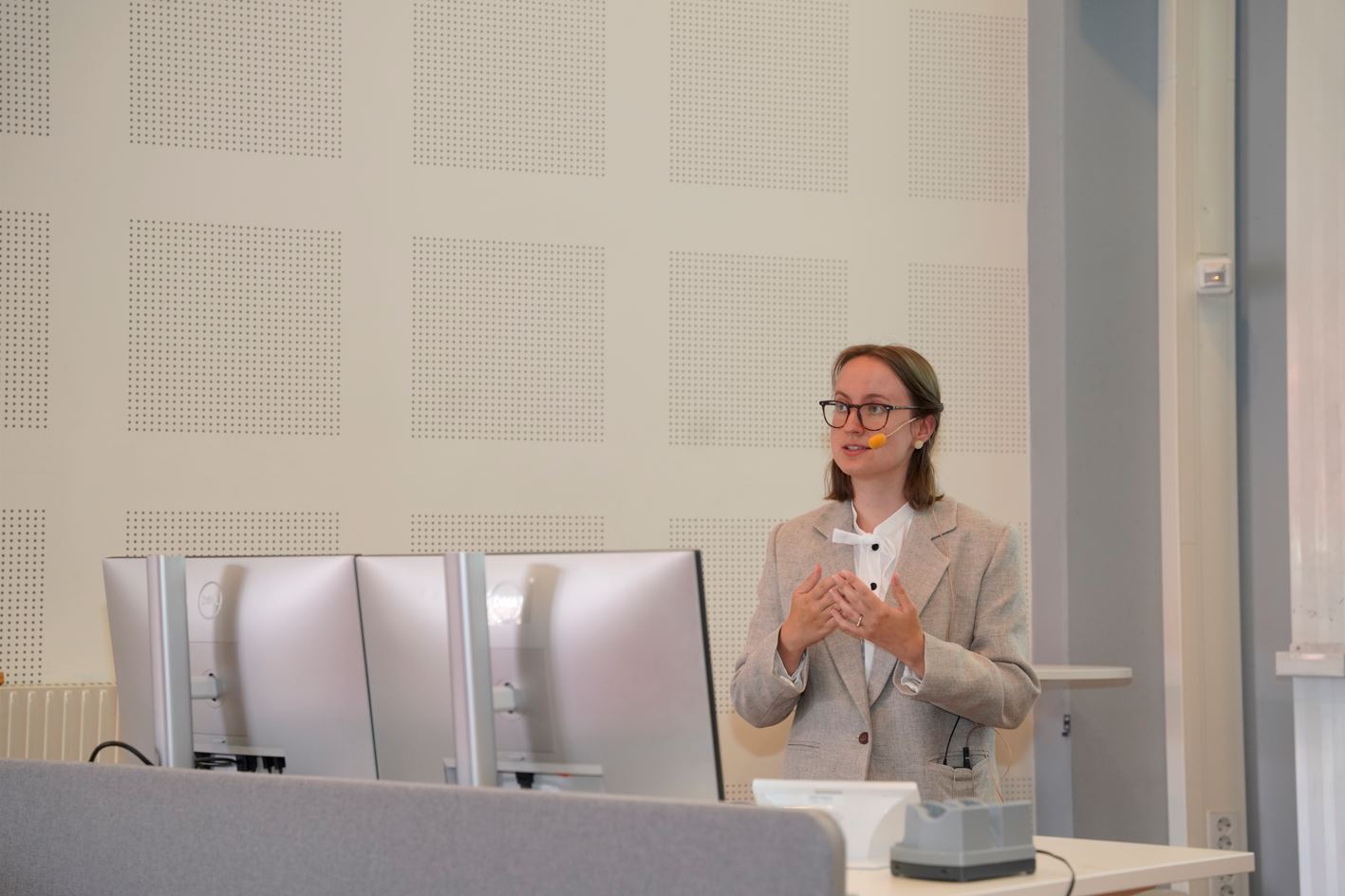Fuel cells in focus in new doctoral thesis
Live Mølmen, PhD student at the School of Engineering (JTH) at Jönköping University (JU) and the research school Smart Industry Sweden, recently defended her doctoral thesis "Durability evaluation of PEM fuel cell components". The thesis can help improve the electrification of vehicles.

Live Mølmen.
The research that Live Mölmen performs is located at the Research Institutes of Sweden (RISE) and is about lifetime testing of materials for PEM (Proton Exchange Membrane) fuel cells.
Fuel cells generate electricity from chemical reactions that are amplified by a catalyst. Hydrogen fuel cells are one of the solutions for the electrification of vehicles, especially heavy duty vehicles where long range and fast refueling are important. But for fuel cells to pay off, cost-effective materials and manufacturing methods must be used. At the same time, all materials must be resistant to the fuel cell’s internal environment, which with high temperature, acidic pH and electrical potential is demanding for common materials such as steel and nickel.
"Hydrogen fuel cells are one of the solutions to electrify vehicles. To ensure the lifetime of the fuel cell, reliable test methods of the fuel cell and its components are needed. In this thesis, the degradation of the components, as well as the test methods to characterize the components are in focus," says Live Mølmen.
Help reduce global warming
The electrification of the transport sector is an important component in reducing global warming. To reach all segments in the transport sector, more alternatives than batteries are needed and fuel cells are one of them. The knowledge from Live Mölmen’s research can be used to support Swedish industry in the transition to the production of components for PEM fuel cells.
"The thesis gives an overview of the components in the proton exchange membrane fuel cell, the materials used for each component, and the test methods used to characterize the materials. Both commercial and novel materials are studied to see what the status is today and how to improve for the future," says Live Mølmen.
Live Mølmen grew up in Trondheim, Norway. She got her Master in Materials Science and Engineering from the Norwegian University of Science and Technology (NTNU). For the past five years, Live has been enrolled as an industrial PhD student in Materials and Manufacturing at JTH, performing her work at RISE in Borås.
"I think the biggest thing I will take away from my studies is all the people I have met during this time. I have had a great team of supervisors and phenomenal colleagues both at RISE and at JTH. I have, through different PhD student networks, been able to attend courses both in Sweden and in Europe with inspiring lecturers and even more inspiring fellow PhD students," she says.
External examiner/opponent was Professor Frode Seland, Norwegian University of Science and Technology (NTNU). Principal supervisor was Professor Peter Leisner, JTH

Live Mølmen defended her Doctoral Thesis on June 16.
